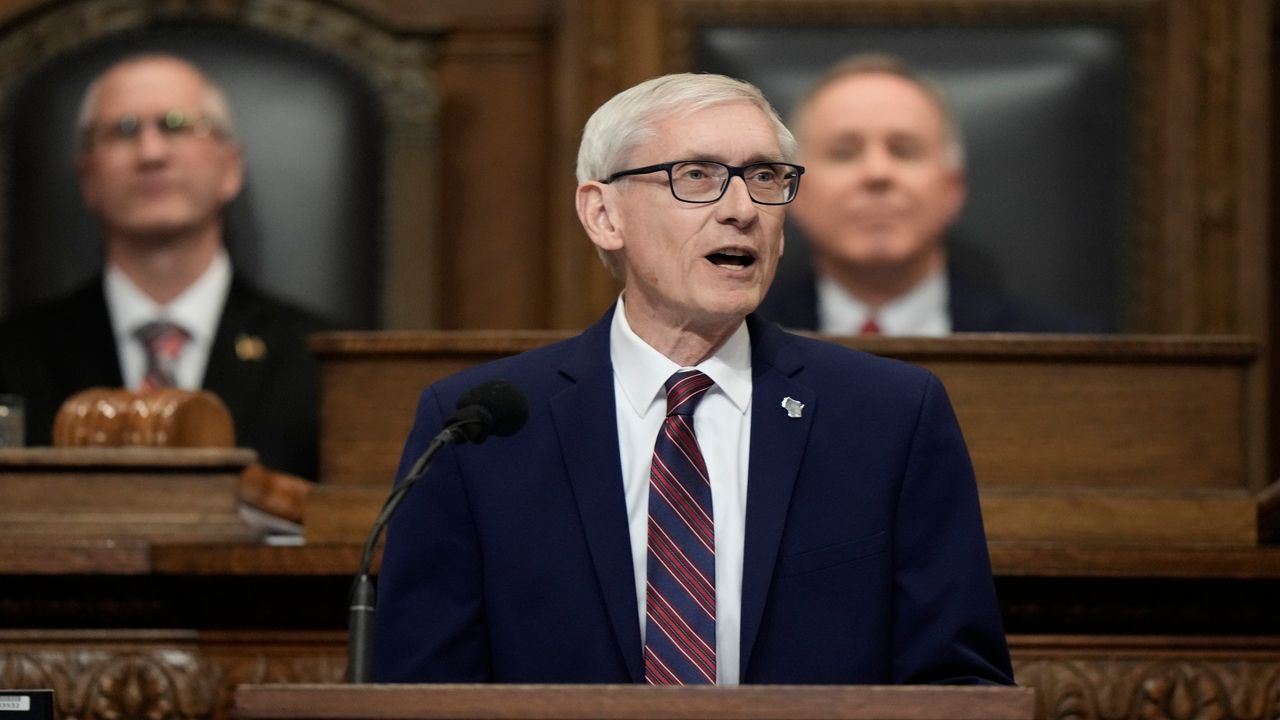MADISON, Wis. (AP) — Legalizing marijuana, paying for renovations at the Milwaukee Brewers' stadium and creating a paid family leave program are among the more than 500 items proposed by Democratic Gov. Tony Evers that the Legislature's Republican-controlled budget committee plans to kill Tuesday with a single vote.
The move comes as no surprise after Republicans, who control the state Legislature with large majorities, did the same with Evers' past two budgets and said they would do again this year. The vote kicks off the committee's work reshaping the nearly $104 billion two-year budget that Evers submitted in February.
Starting Tuesday, and likely continuing into June, the Joint Finance Committee will take a series of votes to build its own two-year spending plan which will then go to the Senate and Assembly for approval. Once passed, Evers can make changes through his powerful veto, which is what he did with the past two budgets he signed that included both Republican and Democratic priorities.
The state has a projected $7 billion budget surplus, money that Evers had proposed tapping to pay for a wide array of spending priorities that Republicans are killing.
Evers proposals slated to be stripped from the budget on Tuesday include: a 10% income tax cut targeting middle- and low-income earners; $270 million to add more mental health providers in schools; and freezing enrollment in the state's private school voucher program.
Republicans have been working on their own plans to cut income taxes, increase mental health services in schools and expand funding for the school voucher program.
Other Evers proposals that Republicans have long opposed, and are also slated to be killed, include accepting federal Medicaid expansion, raising the minimum wage, implementing automatic voter registration and repealing the state's right to work law.
Democrats accused Republicans of acting against the wishes of voters on issues like Medicaid expansion and marijuana legalization that polls show have broad support.
“This is a popular budget,” said Democratic Rep. Evan Goyke, a member of the budget committee, at a news conference prior to the vote. “People like the policies in the governor’s budget. They support the policies he proposed.”
Evers' spokesperson Britt Cudaback reacted with a tweet Friday saying Republicans "have no real plans to address pressing challenges facing our state.”
“If I were a Republican Party that had lost 14 of the last 17 statewide elections, I would simply not reject wildly popular policies supported by a majority of the state,” Cudaback tweeted.
Evers won reelection in November, while Republicans increased their majorities in the Legislature — taking advantage of maps they drew that strengthened their hold on legislative districts.
Evers, citing broad support as measured by public polls, called for legalizing both recreational and medical marijuana. Republicans have long resisted legalizing recreational marijuana, but Assembly Speaker Robin Vos said last month he hopes to bring a medical marijuana bill to a vote this fall.
Evers' paid leave plan would have created a program for both public and private sector workers giving them 12 weeks of family and medical leave starting in 2025.
Evers also called for spending $290 million to repair American Family Field in Milwaukee, where the Brewers play. Vos said in March that the plan would not pass and that Republicans were working on their own alternative to extend the team's lease, which is scheduled to expire in 2030. Evers' proposal would have extended it by 13 years, through 2043. The Republican stadium plan is expected to be debated outside of the budget.
Other big aspects of Evers' budget remain, for now, but will almost certainly be changed by Republicans. That includes Evers' plan to increase special education funding by $1 billion and allow schools to spend $350 more per student in the 2023-24 school year and $650 more the following year, increasing state-imposed revenue limits. There was no increase in the revenue limit the past two years, which is the maximum amount school districts can bring in through property taxes and state aid. Currently, schools get $742 per student.



